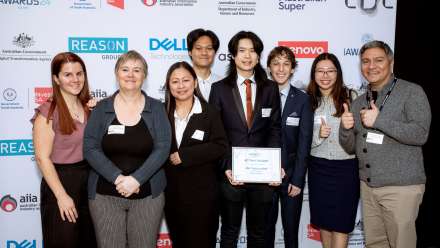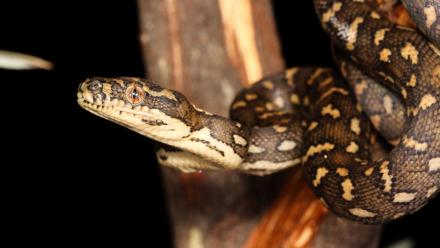ANU immunologist elected to the Royal Society
Leading immunologist Professor Carola Vinuesa from The Australian National University (ANU) has been newly elected as a Fellow of the prestigious Royal Society.
Founded in the 1660s and consisting of distinguished scientists, engineers and technologists from the UK and the Commonwealth, the Royal Society aims to recognise, promote, and support excellence in science for the benefit of humanity.
Professor Vinuesa has been recognised for her work in identifying cells, proteins, and genes that control antibody responses and prevent autoimmunity, paving the way to develop targeted therapies for immune diseases.
"Being elected as a Fellow of the Royal Society is a huge honour which means a lot to me," Vinuesa, a professor of immunology at the John Curtin School of Medical Research and Co-Director of the ANU Centre for Personalised Immunology, said.
"It also recognises the extraordinary team members and colleagues that I have had throughout my career, to whom I am very grateful."
Each year, a group of around 800 candidates are proposed by the existing Fellowship, of which up to 52 Fellows and 10 Foreign Members are elected.
Fellows have made a "substantial contribution" to the improvement of knowledge in their field, something which Professor Vinuesa has achieved through her pioneering work in cellular and genetic immunology.
"Besides the extraordinary opportunities for networking and career advancement, being a Fellow of the Royal Society involves a responsibility to bring our science to the benefit of humankind, and to help solve some of the most pressing problems of today's world," Professor Vinuesa said.
"We also have a responsibility to educate our communities and governments on the value of science, as well as to mentor the next generation."
Professor Vinuesa's work at the Centre for Personalised Immunology (CPI) has involved sequencing whole genomes from patients with immune diseases, to uncover rare gene variants that change protein function and illuminate disease mechanisms.
The CPI has made complex advances toward uncovering the causation of autoimmune diseases such as lupus, which will improve treatment options for the future.
Her research has largely focused on the complex interaction of cells and molecules, and identifying the genetic abnormalities that contribute to the development of autoimmunity.
Over her career, Professor Vinuesa has been decorated with several prestigious awards including the Science Minister's Prize for Life Scientist of the year (2008), and the Gottschalk Medal of the Australian Academy of Sciences (2009). She was also elected as a Fellow of the Australian Academy of Science in 2015.
Professor Vinuesa said she is passionate about bringing her scientific expertise to the Royal Society and continuing to further scientific knowledge for the benefit of humanity.
"My advice to aspiring individuals in the STEM field would be to work hard, believe in yourself, follow your dreams, and surround yourself with good mentors," Professor Vinuesa said.


